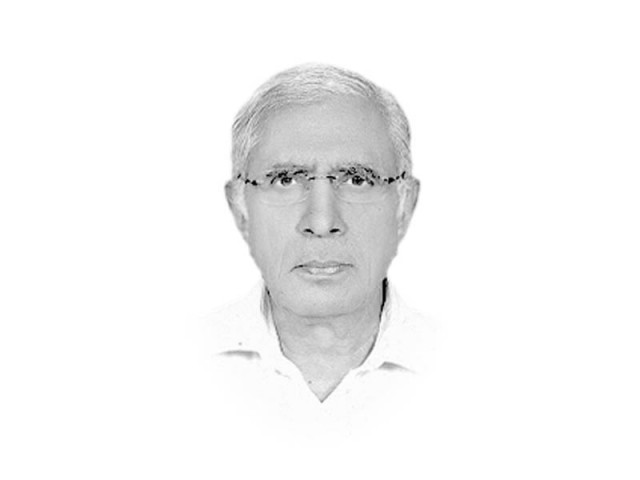An unnecessary confrontation
Since 2001, Americans have not been significantly successful in transforming Afghanistan into a democratic society.

The writer is Executive Editor of The Express Tribune
An ‘Afghan-led and Afghan-owned’ solution is the most common mantra on the lips of most stakeholders. They seemed to have, perhaps, assumed that a solution endorsed by the majority of the Afghans would emerge soon after the May 2014 elections and it would be accepted and honoured by all regional countries, as well as the international community.
And why not? Hamid Karzai was voted by the ‘majority’ of Afghans twice to the office of the president. And now, the people of Afghanistan are getting ready for their third presidential elections. Once the country gets past this election, it is perhaps further assumed, a largely tribal society would automatically morph into a democratic one with votes rather than guns ruling the roost.
It is perhaps also assumed that a consensus ‘Afghan-led and Afghan-owned’ solution would emerge following the election and which the new president would be able to implement with the help of recently built institutions, like the civil service, the police and the judiciary backed by the 350,000-strong Afghan Army.
But if one went by Pakistan’s own experience, most of these assumptions appear misplaced. We have had as many as a dozen elections since independence. But so far, we have only been able to turn the largely tribal society of ours into a feudal one and that, too, only in pockets.
The British colonialists did extend railway tracks beyond Amritsar but little else of modern civilisation. And beyond Peshawar, they did not even extend these tracks, ostensibly so as to create a buffer between them and the Russian Bear. Afghanistan is no more a buffer state, but it is still largely a tribal society.
It is in the very nature of feudal societies to resist democratic dilution of their newly-acquired powers. Our own feudal pockets did no different. But, in the process, they succeeded in delaying the inevitable by creating enough space for military dictators who, in turn, tried to further entrench and strengthen the country’s feudal aristocracy.
We have already suffered four military dictatorships, as a result. We do have political parties but most are still feudalistic, family affairs. Elections are fought not on the basis of ideas or ideologies but between clans and castes and on sectarian and fiqh divides. Elected governments are usually family driven as is evident in Islamabad and Lahore currently.
Societies don’t transform into democratic ones overnight. They develop into one only through a long-drawn evolutionary process influenced greatly by social and economic advancements.
The might and firepower of the now defunct Soviet Union could not transform a tribal Afghanistan into a socialist society. And since 2001, the Americans have been trying with all their superpower might to forcibly remove the tribal moorings of Afghanistan and transform the country into a democratic one, but without any significant success.
With the exception of a few feudal pockets, the landmass that comprises Pakistan and Afghanistan is home to a multitude of tribes. And, as is customary in such societies, personal, family and tribal honour is accorded the highest priority, rituals are mistaken for religious canons and obscurantism is confused with faith.
All these factors have greatly influenced the decision-making processes in the two countries. Mullah Omar had refused to oblige the US when the latter demanded that Osama bin Laden be handed over to them. He had refused not because some religious injunction had obliged him to do so but because it had become a question of honour for him. Bin Laden was finally killed and the hunt is on for Mullah Omar. In between, thousands of innocent Afghans have died in the ensuing ‘liberation’ war. This war has spilled over across the Durand Line. Being members of a feudal-cum-tribal society, Pakistanis, as expected, have responded by playing the honour and sovereignty games to the hilt, which has led Islamabad into an eyeball-to-eyeball but unnecessary confrontation with the US.
Published in The Express Tribune, December 18th, 2013.
Like Opinion & Editorial on Facebook, follow @ETOpEd on Twitter to receive all updates on all our daily pieces.















COMMENTS
Comments are moderated and generally will be posted if they are on-topic and not abusive.
For more information, please see our Comments FAQ